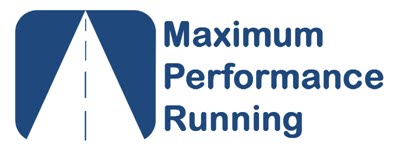Maximum Performance Running has initiated new coaching
service options for distance runners of all ages and ability levels. Options that are both effective in producing
great running results, and affordable for most any budget in these tough
economic times.
On-Line Coaching
On-line coaching is the coaching option designed for the serious
runner looking for a personal running coach to help them take their running to
the next level. In this option Coach
Mark Hadley becomes your personal running coach, consulting with you on all
aspects of your training, and designing for you custom training programs in
order help you reach your goals. You and
Coach Hadley have regularly scheduled feedback sessions, schedule adjustments
and optimizations, and he is available to you 24/7 for when urgent situations
occur that require immediate feedback and discussion. Let Coach Hadley use his 30+ years in the
sport of running, and his vast experience in successfully working with runners
at all levels, to help you achieve your goals in the sport.
On-Line Coaching Includes:
-
Initial consultation(s) with Coach Hadley to discuss your running
and training history and future goals and race schedule
-
Complete and customized detailed training program, designed a
training cycle at a time, but updated weekly
- Weekly e-mail exchange with Coach Hadley to report your results
from training, get feedback on the week, have training paces and any specific
instructions assigned for the following week, and to make any adjustments to
the program/schedule that are needed for optimization.
-
24/7 access to Coach Hadley if problems/issues arise or urgent
communication is needed
-
Personalized race strategies based on your training, strengths and
weaknesses
Price: $125 per month*
*Discounted to $75 per month for members of the: 2016 U.S. Marathon Trials Project
On-Line Coaching
replaces “Personal Coaching” as a streamlined, more affordable option but one that
still includes all the personal attention and customization that is critical to
maximizing your running performances.
Click here to go to MPR's On-Line Coaching Page
Custom Training
Programs
Custom program is the perfect choice of the runner who in
the past has used a generic program found on the internet or in a book in order
to train for their big races. An MPR Custom
Training Program helps them boost their performance through a training schedule
that has been custom designed specifically for them, taking into account their
strengths, weaknesses and personal situation (work, family, travel, vacations, race schedule). You put a lot of time and effort into
training, don't entrust that to some generic program, you deserve better! Let Coach Hadley build you a personalized
training program, so you can get the most from the time and effort you put into
training for your next big race.
4 Easy Steps:
1) Select the program length you want (8-24 weeks) depending on your goal race and then register on-line
2) Coach Hadley sends you (via e-mail) a Runner Questionnaire to fill out
3) Fill out and return the questionnaire and Coach Hadley will follow up if there is any need for clarifications / additional information
4) Coach Hadley will design your custom training program and have it to you (via e-mail) within 5 days after receiving your questionnaire back.
4 Easy Steps:
1) Select the program length you want (8-24 weeks) depending on your goal race and then register on-line
2) Coach Hadley sends you (via e-mail) a Runner Questionnaire to fill out
3) Fill out and return the questionnaire and Coach Hadley will follow up if there is any need for clarifications / additional information
4) Coach Hadley will design your custom training program and have it to you (via e-mail) within 5 days after receiving your questionnaire back.
Each Custom Program Includes:
-
Detailed Custom Training Schedule
-
Custom Race Plan
-
Tips, charts and fun extras
Prices:
8 week - $99.99
12 weeks - $124.99
16 weeks - $149.99
20 weeks - $174.99
24 weeks - $199.99
The MPR
Consulting Sessions are designed to help runners get answers to their running
questions? Coach Hadley offers 1-on-1
consulting sessions to help runners get answers, whether it is through a
planning session, training plan review or design, or situation analysis. The MPR consulting sessions is a chance to
sit-down 1-on-1 and pick the brain of a coach with over 30 years of experience
in the sport, and one who has successfully trained everyone from masters to
youth and from beginners to elites? Consulting
sessions are available on the phone from anywhere or in person in the
Charlotte, NC area.
Price: $50 per hour
Not only can
MPR’s coaching services help you achieve your goals in running, but it can help
make a difference for those with special needs. MPR founder Mark Hadley’s
family has been greatly affected by Autism (his youngest daughter and his nephew
both have Autism). So in order to be a good
steward of the coaching skills he has been blessed with, Coach Hadley is
donating 10% of all revenues from MPR’s coaching and consulting services to
charities that focus on Autism Spectrum Disorders research, advocacy, and
support.




